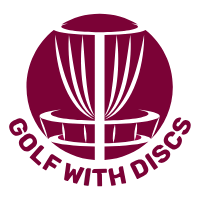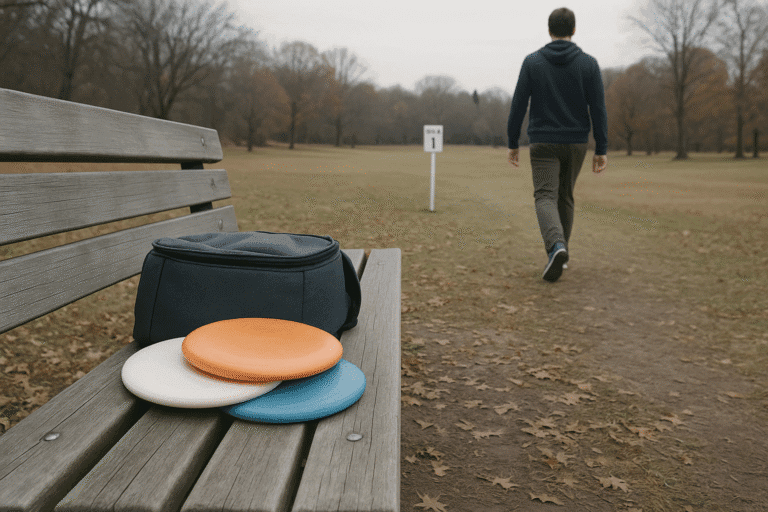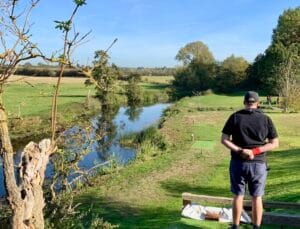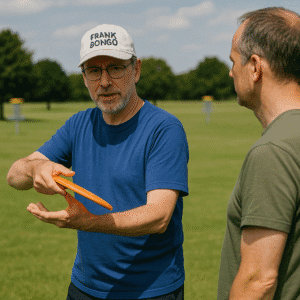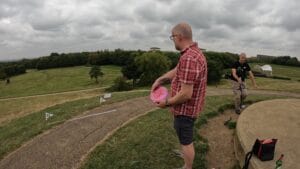The disc golf starting point sounds easy. Buy a disc, find a basket, throw it. But most beginners get stuck before they ever play.
Plenty of well-meaning guides will tell you which disc to buy, how to throw it, and what plastic blend is “best” for your level, but something still feels off. You follow all the tips, but your disc golf starting point still feels unclear or awkward. The real challenge isn’t physical. It’s mental.
There’s a quiet panic that sets in when you’re standing in a sports shop or scrolling through flight charts online, trying to guess which disc is least likely to make you look like an idiot. And that’s before you even get to a course. You start to wonder if you’re even cut out for it.
It’s easy to fall into the trap of overthinking your way out of playing. What if you choose the wrong disc? What if your form is a joke? What if people are watching? Instead of getting excited, you start second-guessing. You end up waiting until you feel “ready”, which, conveniently, never seems to arrive.
But what if the whole idea of being ready is a distraction? What if the starting point isn’t about gear or skill or even knowing the rules? What if it’s just about deciding that you’re allowed to begin?
That’s where we’ll start. Not with discs. With a mindset.
Why Most Disc Golf Starting Point Guides Miss the Mark
Go online and search for help starting disc golf. You’ll find lists of “top beginner discs,” form tutorials, and gear breakdowns.
Helpful? Maybe. But they often send people in the wrong direction. The assumption is always the same: buy the right gear and the fun will follow.
It doesn’t work like that. When you’re invested in the process, the gear finds its place. If you treat your first few rounds like a shopping trip disguised as a sport, you’ll lose interest quickly.
The reason is simple. Things feel more rewarding when you build them yourself. That includes your style of play, your habits, your preferences, and your rituals. If someone else hands you a blueprint and says “do this”, it’s easy to abandon it the moment it doesn’t feel natural.
And let’s be honest. Most people don’t quit disc golf because it’s hard. They quit because they never figured out what kind of player they wanted to be. They followed advice instead of following curiosity.
Let me fix that. If you’ve thrown a disc with intent, you’re a disc golfer.
Your Real Disc Golf Starting Point Is How You Think
Step 0 isn’t buying a disc. It’s choosing how to think about the sport.
Disc golf has no gatekeepers. There are no minimum scores, no entrance exams, no qualifying rounds. You are a disc golfer the moment you say you are. But that idea makes people uneasy, especially if they’ve grown up with sports that demand proof of performance.
Let me fix that. If you’ve thrown a disc with intent, you’re a disc golfer.
That’s it. The disc doesn’t care how far it goes. Your identity doesn’t depend on your form. Most people wait until they “feel legit” before they tell others they’ve taken up the sport. They’re waiting for something to click. But confidence comes from action. Not the other way round.
Choose a Disc Golf Starting Point That Fits Your Style
Everyone wants to know the best disc to start with. But that’s the wrong place to begin.
Start by asking what kind of experience you want. Are you playing to improve? To unwind? To explore a new obsession? That answer shapes everything else.
Here are three types of starting points. See which one fits you.
- The Explorer
You like trying new things. You’re not bothered by inconsistency.
Start with three different discs. Go to a quiet field. Throw them without keeping score. Make notes on what you liked. - The Competitor
You want to get better. You like metrics and feedback.
Use one putter only. Track how often you land within five metres of the basket. Celebrate tiny improvements. - The Escapist
You’re playing to relax. Performance comes second.
Stick to one local course. Use the same disc every time. Play solo. Keep it simple.
When you choose your style, decisions about gear, form, and practice start to fall into place.
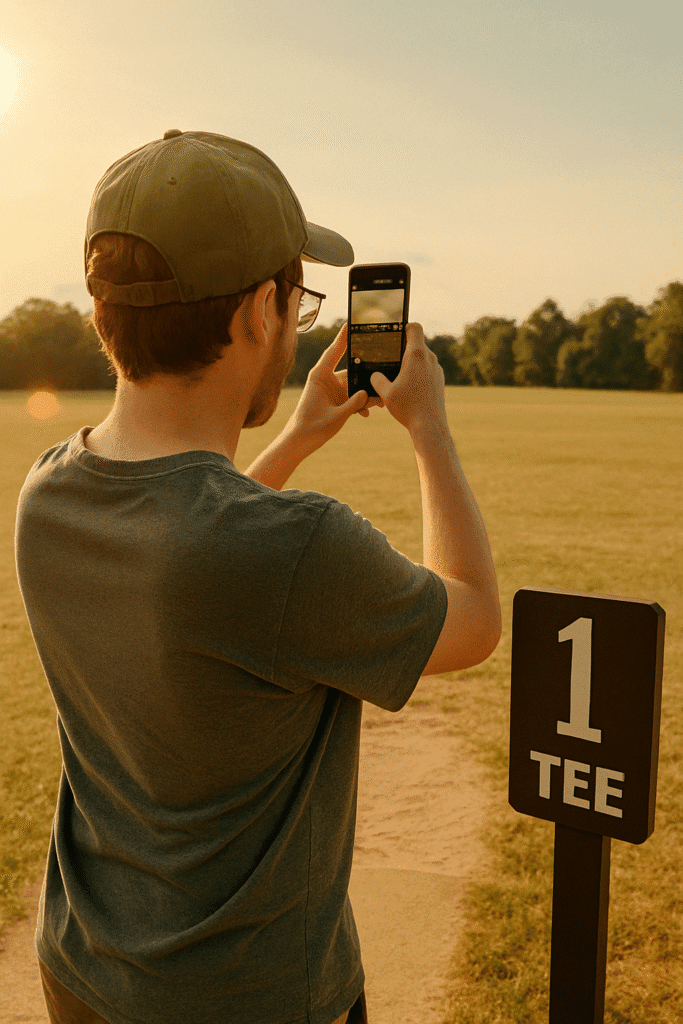
Strip Back Your Disc Golf Starting Point and Build Momentum
There’s a reason new players get overwhelmed. Too many options. Too much noise.
Putters or mids? Light or heavy? Premium plastic or budget? Overstable or understable? It becomes easier to browse gear than to play.
So here’s a better rule: one disc, one course, one round per week. Strip it back. Give yourself room to enjoy it.
Small constraints help form habits. They reduce the mental tax of deciding what to do. And oddly enough, they make it more fun.
Try the “One Disc for 30 Days” experiment. Pick a single disc, any disc, and use it exclusively for a month. You’ll learn touch, angles, and creativity. You’ll also stop obsessing over the next thing to buy.
Create Disc Golf Rituals That Make You Want to Keep Playing
Routines are good, but rituals go deeper. They create meaning.
Doing the same small thing before every round — like tapping the basket, or taking a photo, or saying a phrase in your head — tells your brain this matters. You’re creating a marker. A bit of theatre that makes the experience feel deliberate.
Rituals make the experience stick. They turn disc golf into something personal.
Try this:
- Name your disc. Give it character.
- Start every round the same way, even if it’s just a practice putt.
- Write one sentence after every round. Not about how you played. About how it felt.
These small acts don’t just build consistency. They build identity.
Avoid the Social Trap When Starting Disc Golf
YouTube and Instagram are full of disc golfers throwing further than you thought humanly possible. It’s entertaining, but also misleading.
You start comparing. You start feeling slow, underpowered, and late to the party. That comparison kills momentum.
Instead of watching everyone, choose a few players whose style you admire. Not because they’re pros, but because they make the game look accessible.
Build your own “starter circle”. Maybe five people. Watch how they talk, how they throw, how they enjoy themselves. Let them inspire you. Not intimidate you.
Turn Your First Disc Golf Round Into a Marker That Matters
Your disc golf starting point is about memory, not measurement.
Think like a brand launching a new product. Make it memorable. Give it a hook. Frame it so you’ll want to do it again.
Try this:
- Take a photo at the first tee.
- Choose one thing to track, like holes where you felt confident.
- Write down one unexpected moment — a weird bounce, a lucky shot, or something someone said.
Don’t treat it like a test. Treat it like a beginning worth remembering.
Common Mistakes That Ruin Your Disc Golf Starting Point
Here are a few habits that stall progress before it begins:
- Buying too many discs
You won’t know what suits you until you’ve played more. Start with less. - Chasing distance
Everyone wants big throws. Focus on control first. - Joining a league too soon
If it motivates you, great. But if it makes you feel like a fraud, wait. - Obsessing over form
Get a feel for the disc. Form will come. - Comparing yourself to others
They’ve probably been playing longer. Focus on your own arc.
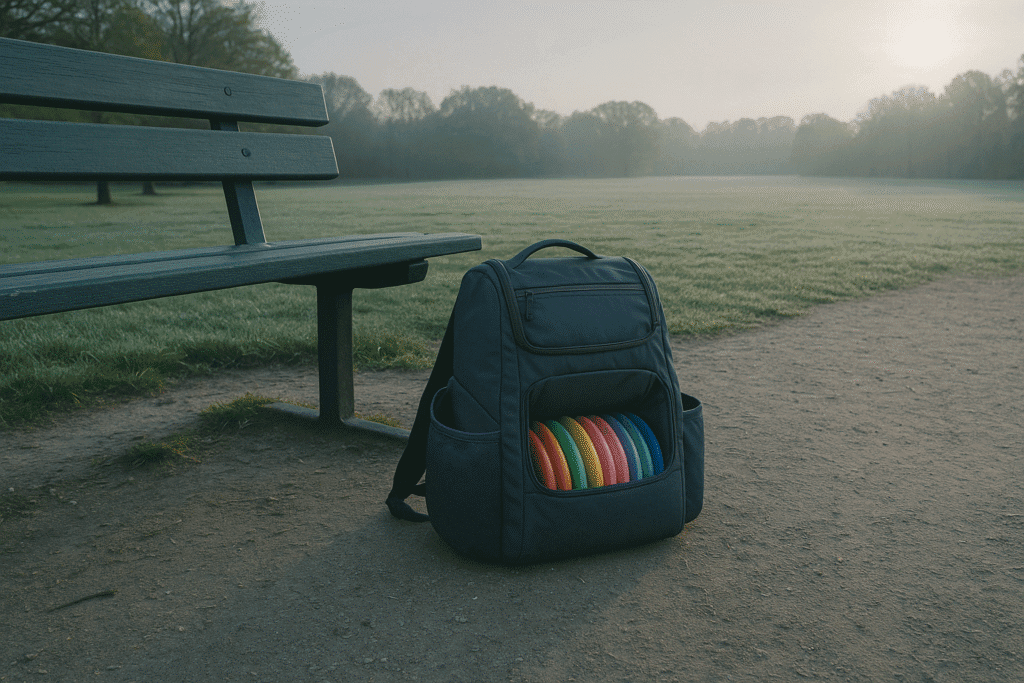
Where You Start Is Up to You
The disc golf starting point isn’t in your bag. It’s in your thinking.
You don’t need to pass a test or buy the perfect gear. You just need to begin with intent.
So pick a disc. Throw it with purpose. Track something. Laugh when it goes wrong. Repeat next week.
That’s how you start.
Four Disc Golf Starting Habits Worth Trying
- Choose one disc. Name it. Use it for a month.
- Create a simple ritual before every round.
- Track one fun thing. Ignore traditional stats for now.
- Pair up with one beginner and swap notes.
FAQs
What disc should I start disc golf with?
A stable putter or midrange. Easy to control, good for learning.
Can I play disc golf with just one disc?
Yes. It’s a great way to learn. One disc forces creativity and control.
What’s the best way to practice as a beginner?
Keep it simple. One disc, one course, one round each week. Build from there.
Is disc golf hard to learn?
It’s easy to start and endlessly fun to improve at. Low stress, high reward.
Should I join a club when I’m new?
Only if it feels welcoming. You can start solo and build up confidence before joining others.
